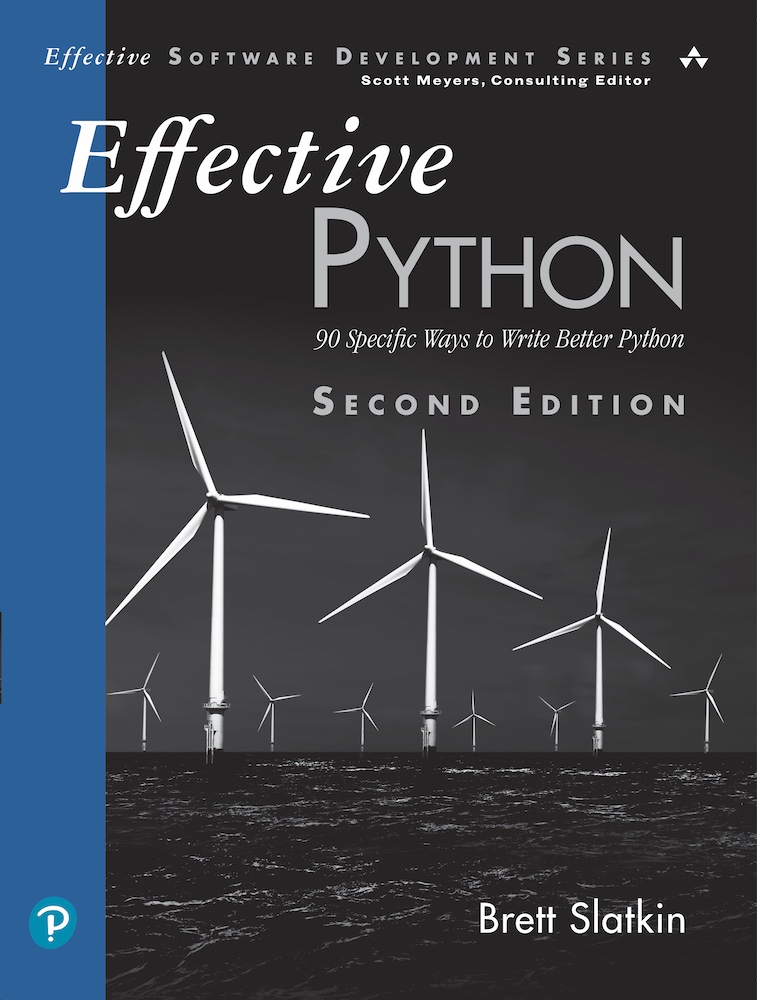What This Book Covered
You are reading about a previous, old version of this book. The third edition of this book (released in November, 2024) is focused exclusively on Python 3, up to and including version 3.13.
Most of the original items from the second edition have been revised and included in the third edition, but many have undergone substantial updates. For some items my advice has completely changed due best practices evolving as Python has matured.
If you’re still using an older version of Python 3 (such as 3.8 or earlier), the second edition of the book (released in November 2019) might still be useful to you.
Translations are available in 日本語, Deutsche, Polszczyzna, Hrvatski, 简体中文, 繁体中文, 한국어
